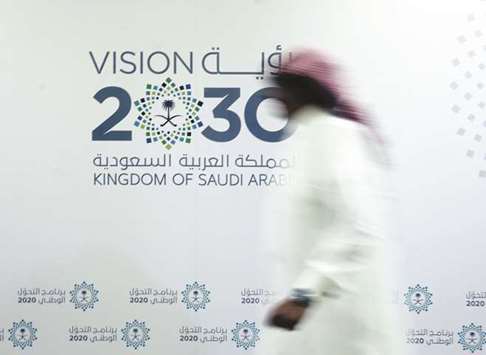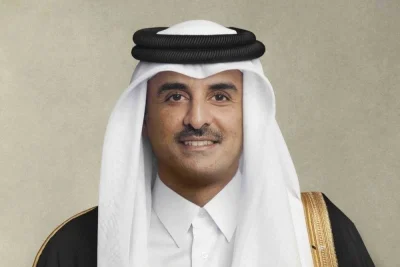Saudi Arabia’s economy is expected to shrink this year for the first time in eight years, hit by sagging oil output and austerity policies which are hurting private sector growth.
A Reuters poll of 15 economists analysts found yesterday they had lowered their median forecast for Saudi gross domestic product in 2017 to a fall of 0.5%.
In the previous poll, conducted in July, they had predicted expansion of 0.1%.
It would be the first annual contraction of the Saudi economy since the global financial crisis in 2009, according to International Monetary Fund data, and could raise concern about the kingdom’s economic reform programme.
A privatisation scheme and other reforms aim to reduce reliance on oil exports by igniting private sector growth.
But spending cuts and tax rises to cut the huge state budget deficit are weighing heavily on the private sector.
The analysts in the Reuters poll have become significantly more gloomy about Saudi growth than the IMF, which expects the economy to expand 0.1% this year.
But a senior IMF official conceded last week that its forecast might be difficult to achieve because of an unexpectedly weak non-oil sector.
Next year, the Saudi economy is expected to grow 1.3%, instead of the 1.9% projected in the previous poll, the analysts said.
They expect growth to rise further to 2.0% in 2019.
The Saudi slump is partly due to lower oil output; the kingdom has cut production this year under an international deal to prop up prices.
The deal runs through next March, but producers are discussing whether to extend it.
A deeper-than-expected slowdown in the non-oil private sector is also dragging on the economy, however.
New private investment has largely halted and the non-oil sector expanded just 0.6% from a year ago in the second quarter of 2017.
“Our GDP Tracker suggests that the downturn deepened further at the start of Q3,” said Jason Tuvey, Middle East economist at London-based Capital Economics, which now expects a contraction of 1.3% for the whole year.
He added, “The drag from the oil sector seems to have intensified, while the non-oil sector lost a bit of momentum.”
Publicly, Saudi policymakers insist the economy is healthy and that growth will pick up. But Tuvey said they would be concerned that a slight easing of austerity in the second quarter – a reversal of cuts to civil servants’ benefits – had not boosted the non-oil sector.
That may force authorities to ease austerity further, possibly by holding off on domestic fuel and electricity price hikes originally planned for this year.
Officials are considering whether to go ahead with the hikes.
The Reuters poll also predicted Saudi Arabia’s government would run a fiscal deficit of 8.1% of GDP this year – a big improvement from 12.3% last year, according to Saudi data, but still much too large to sustain in the long term.
The deficit will shrink only slowly to 7.5% next year and 7.3% in 2019, the poll forecast, suggesting Riyadh is unlikely to hit its publicly stated goal of eliminating the deficit by 2020.

A Saudi man walks past the logo of the Vision 2030 after a news conference in Jeddah (file). The analysts in the Reuters poll have become significantly more gloomy about Saudi growth than the IMF, which expects the economy to expand 0.1% this year.


